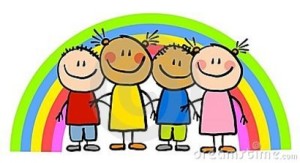A learning disability (LD) is a neurological disorder that is lifelong. Children with LD have average or above average intelligence but have difficulty performing as well as their peers in school. Their difficulties could be in one or a combination of the following:
1. Dyslexia— a language based disability where a child has difficulty in reading; this manifests itself as difficulty reading words (decoding) or understanding what is being read (reading comprehension).
2. Dyscalculia— a learning disability that involves difficulty understanding math concepts and solving arithmetic problems.
3. Dysgraphia–a writing disability that involves difficulty in forming letters or writing within a defined space.
4. Auditory and Visual Processing Disorder— a disability that involves difficulty making sense out of auditory and visual information even as child has normal hearing and vision.
The following are “red flags” for possible existence of LD in younger children (taken from LD Basics on ldonline). The earlier LD is identified, and interventions started, the better the chances of the child to overcome their difficulties and succeed in school.
Preschool
-Speaks later than most children
-Pronunciation problems
-Slow vocabulary growth, often unable to find the right word
-Difficulty rhyming words
-Trouble learning numbers, alphabet, days of the week, colors, shapes
-Extremely restless and easily distracted
-Trouble interacting with peers
-Difficulty following directions or routines
-Fine motor skills slow to develop
Grades K-4
-Slow to learn the connection between letters and sounds
-Confuses basic words (run, eat, want)
-Makes consistent reading and spelling errors including letter reversals (b/d), inversions (m/w), transpositions (felt/left), and substitutions (house/home)
-Transposes number sequences and confuses arithmetic signs (+, -, x, /, =)
-Slow to remember facts
-Slow to learn new skills, relies heavily on memorization
-Impulsive, difficulty planning
-Unstable pencil grip
-Trouble learning about time
-Poor coordination, unaware of physical surroundings, prone to accidents
More next week….





